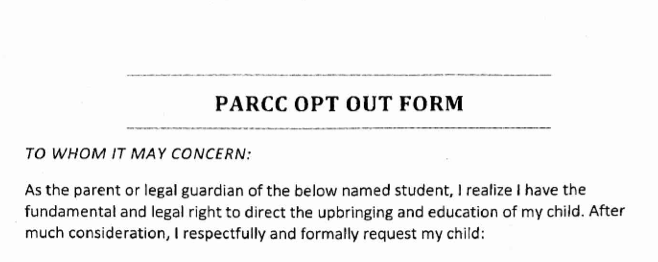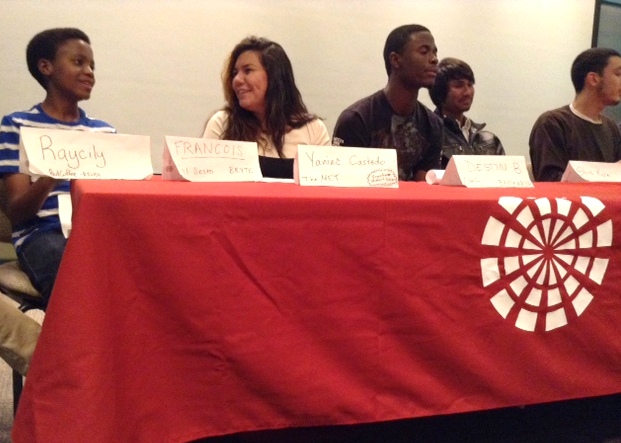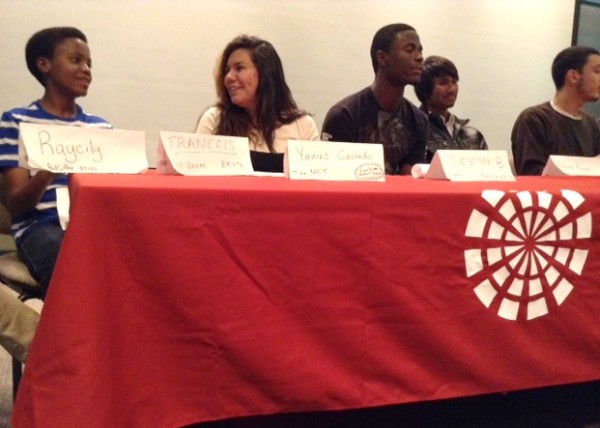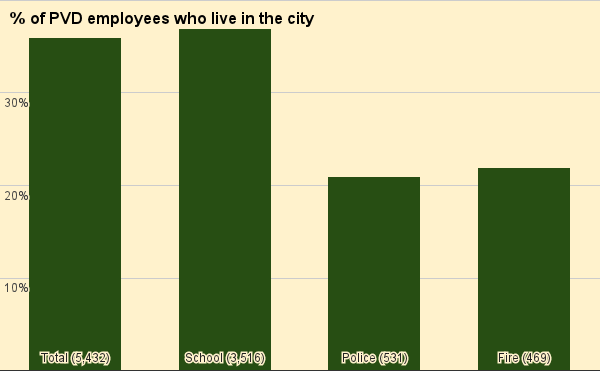 In an effort to stymie parents interested in opting their children out of PARCC, Providence Public Schools created a secret permission form.
In an effort to stymie parents interested in opting their children out of PARCC, Providence Public Schools created a secret permission form.
Not all schools even know about the form. There was confusion at the front offices of several schools. At one, I was told, the guidance department hadn’t heard anything about an opt-out program. Another administrator said that they would “talk to the parent and find out why… and then contact my supervisor.”
At other schools, workers were specifically told NOT to publicize it. However, in order to make sure that all the paperwork is handled, they were told to have parents sign the forms to release their children. While I understand the CYA attitude, keeping the forms secret is yet another signal that there is something seriously wrong with the testing industry. If nothing else, the form is designed to slow and intimidate parents who might otherwise opt-out.
PARCC testing will be running for five days between 85 and 120 minutes per day at the Middle School level. Not only does this eat up at least 7.5 teaching hours. Additionally, the lengths of each tests are irregular, making planning and logistics nearly unmanageable.
At Classical High School, although only ninth and tenth graders will be taking the PARCC tests, eleventh and twelfth graders have a late arrival time of 10:30, losing each of those students a total of 10 hours of class time. Hope and Mt. Pleasant High Schools will be operating on a regular schedule.
In a YouTube video, Lori B. McEwen, Ph.D., Chief of Instruction, Leadership and Equity for PPSD said that PARCC was important for students to graduate college-ready. She also said that parents will be informed about the testing schedule. As a parent with students in the schools, I haven’t received information in a timely or useable fashion.
Yes, there are fundamental problems with public education, and demonizing standardized testing isn’t going to solve them.
However the diversion of millions of Rhode Island tax dollars to private companies combined with the abusive amount of time spent on testing students leads me to believe that it is our duty as parents and citizens to oppose them.
Civil disobedience is simple, even though Providence made it more challenging.
As it says in the form itself, “…I have the fundamental and legal right to direct the upbringing and education of my child.”




